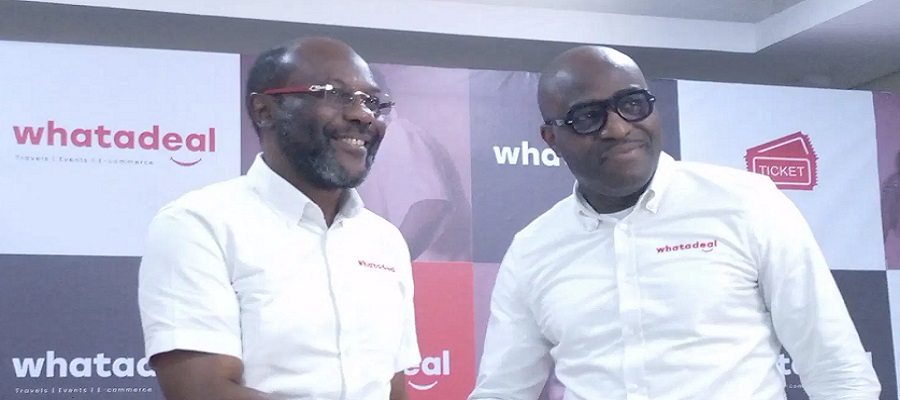E-Business
CommunicationsWeek Taps Willie Obiano as Digital Governor of the Year

Governor Willie Obiano of Anambra State has been listed to be honoured as the Most Outstanding Governor in usage of ICT ‘4’ Development, especially for using Drone Technology for Mapping Purposes; Crime Fighting; and use of ICT in education at this year’s Beacon of ICT (BoICT) Distinguished Lecture/Awards Series.
Ken Nwogbo, CEO/MD, Communication Week Media organisers of the event said that the lectures and awards series is widely regarded as the most prestigious annual event available in the ICT industry in Nigeria.
The award will be conferred on the governor at this year’s Beacon of ICT lecture and award ceremony slated for Saturday, April 25, 2015, at the prestigious Eko Hotels and Suites, Lagos.
According to Mr. Nwogbo, the governor was adjudged the best after polling 50,327 votes out of the 109,000 votes cast in Most Outstanding Governor in usage of ICT ‘4’ Development, category.
The votes cast from December 1, 2014 to March 15, 2015 is a testament to the governor’s talents, innovations, contributions and commitments to the growth of the state.
“We are very happy that Nigerians have recognized Governor Obiano’s hard work, sincerity and dedication towards the development of Anambra state” Mr. Nwogbo said.
Governor Obiano is being honoured for making Anambra State First Choice Investment Destination and a hub for industrialisation and commercial activities.
The governor who marked a year in office recently has used ICT to make the state socially stable, business-friendly environment that now attract both indigenes and foreigners to seek wealth-creating opportunities.
Now in its sixth year, the event is also the largest gathering of ICT practitioner; regulators; financial sector under one roof.
This year’s event is shaping up to be an event as star-studded as any red carpet, with dozens of industry weights agreeing to attend.
The keynote of the award will be delivered by Biodu Omoniyi, Managing Director/CEO, VDT Communications.
He will be speaking on the theme “What Next for Nigerian Telecommunications?
At the inaugural edition of the lecture, Dr. Ernest Ndukwe, then executive vice chairman, Nigeria Communications Commission (NCC) delivered the lecture and gazing into the crystal ball, foretold a broadband revolution.
The following year, it was the turn of Engr. Yomi Bolarinwa, former Director-General of National Broadcasting Commission (NBC) who x-rayed the digitization of broadcasting.
In 2012, Dr. Jean Luc Fort, CEO at OR System France and a specialist in Counterparty Risk wowed the crowd with expectations from mobile money.
In 2013, Professor Chris Nwagboso, Chairman, Knowledge Factory International, United Kingdom and one of the best brains in integrated transport and automotive systems in world; with works in innovation and enterprise delivered the keynote.
He spoke on the theme: “Technology Adaption; Looking IT Straight In the Eye”.
Last year, Uche Orji, managing director/chief executive officer, Nigeria Sovereign Investment Authority (NSIA), shared his wealth of global experience in the financial services sector with ICT industry.
There has never been a dull moment with the event which draws top politicians and government functionaries as well captains in the ICT industry as well financial institutions.
Already, top business leaders and government officials have confirmed attendance.
E-Business
Africa’s Data Workers are Being Exploited by Foreign Tech Firms – Report

Data workers in Africa often have a hard time, according to a report published in theconversation.com, a nonprofit, independent news organization dedicated to unlocking the knowledge of experts for the public good.

The article by Mohammad Amir Anwar, senior lecturer in African Studies and International Development, University of Edinburgh, found that data workers in Africa face job insecurities – including temporary contracts, low pay, arbitrary dismissal and worker surveillance – and alarming physical and psychological health risks.
The consequences of their work can include exhaustion, burnout, mental health strain, chronic stress, vertigo and weakening of eyesight.
Data work includes text prediction, image and video annotation, speech to text validation and content moderation.
The world of data work is built on labour arbitrage – exploiting the fact that workers earn less and have less protection in some countries than in others.
Large technology firms often outsource this work to the global south, including African countries like Kenya, Uganda and Madagascar, and also India and Venezuela.
The result is complex production networks that are generally opaque and shrouded in secrecy.
Workers and researchers have issued many warnings about data workers’ health.
Despite numerous court cases in multiple jurisdictions, nothing much has been done to address these issues either by tech companies or by regulators.
Still, the news of the death of a Nigerian content moderator, Ladi Anzaki Olubunmi, who was found dead in her apartment in Nairobi, Kenya on 7 March 2025, came as a shock.
While the circumstances of her death are still unclear, it has renewed calls for wider systemic change.
Her death has sparked condemnation from the Kenyan Union of Gig Workers, which demanded an investigation.
Since 2015, we have been studying the central role of African data workers in building and maintaining artificial intelligence (AI) systems, acting as “data janitors”.
Our research found that companies rarely acknowledge the use of human workers in AI value chains, thus they remain “hidden” from the public eye. In other words, the world of AI is built on the toil of human workers most people are unaware of.
In this article, we outline key steps needed to protect these data workers in Africa.
They include business process outsourcing regulations, ensuring quality rather than quantity of jobs, and providing social protection. There is also a need to name and shame companies that maltreat data workers.
Data work needs tighter regulation.
Regulation
Business process outsourcing is the practice of procuring various processes or operations from external suppliers or vendors.
Firms that do this are sometimes trying to evade local regulations (like minimum wages) and responsibility towards workers’ welfare (via sub-contracting and the use of temporary employment agencies).
This is happening in Africa as some data training firms and digital labour platforms circumvent local labour laws.
But there is more to the story.
Data work is also seen by lawmakers and practitioners as a solution to the rampant unemployment and informality across Africa.
African governments have actively created regulatory environments that enable these practices to thrive, despite adverse outcomes for workers.
Nonetheless, new regulations have been proposed lately, like the Kenyan government’s Business Law (Amendment) Bill, 2024 targeting the wider business process outsourcing and IT-enabled services sector.
Particularly, it makes business process outsourcing firms responsible for any claim raised by employees. It ensures some accountability for firms bringing data work to Africa.
Other governments should follow with similar measures ensuring worker rights are enforceable. Some data workers are hired on contracts as short as five days and get paid less than the local minimum wage.
Firms found violating labour standards should be penalised.
In fact, there is an urgent need to create regional or continent-wide regulatory frameworks covering the business process outsourcing sector, limiting the space for firms to exploit workers.
It’s possible, however, that jobs might be lost as firms relocate to places with favourable laws, an everyday reality in the outsourcing networks.
Quality, not quantity
African governments should prioritise the quality of jobs and not quantity. Policymakers should think about wider national economic development plans, particularly structural diversification and upgrading of their economies.
Historically, these strategies have resulted in success in some states, addressing social and economic issues such as unemployment, poverty and inequality.
Another option for African governments is to enhance social protection among data workers.
Financing this is a serious issue, so proper taxation and compliance among workers and employers is urgently needed.
Finally, there is a role for naming and shaming firms that treat their data workers poorly. There is evidence that such efforts improve compliance and firms’ behaviour.
Worker movements
African data workers have taken risks in openly speaking about their experiences.
But these kinds of approaches work well when combined with collective bargaining.
Workers have historically won their labour and civil rights after long and hard-fought struggles.
There is a long history of African worker movements and trade unions resisting the apartheid and colonial regimes across the continent.
While the freedom of association is enshrined in the African Charter on Human and Peoples’ Rights and most governments have legislation committed to collective bargaining, it is rarely implemented in the new outsourcing sectors, particularly data work.
It is also difficult to organise workers in the industry, because of the high churn rate. For instance, data training firms like Sama offer short-term contracts to employees, often as short as five days.
Some firms are hostile to workers’ organising activities.
But numerous data worker-led associations have emerged in Africa recently, some led by the co-authors of this article.
Techworker Community Africa, African Tech Workers Rising, African Content Moderators Unions and Data Labelers Association are among them.
These initiatives are crucial to ensure workers have decent remuneration, work-life balance, adequate working hours, protection against arbitrary dismissal, safe working environments, and contributions towards their health and welfare.
Several high-profile court cases are currently being pursued by African data workers against Meta and Sama.
There is precedent. In 2021. Meta was ordered by a Californian court to pay US$85 million to 10,000 content moderators.
AI-dependent tools such as ChatGPT or driverless cars would not exist without African data workers. They are tired of being “hidden”. They deserve to be treated with respect and dignity.
Mophat Okinyi, Kauna Malgwi, Sonia Kgomo and Richard Mathenge co-authored this article.
E-Business
NIMC Says NIN Mandatory to Government Loans

National Identity Management Commission (NIMC) said the National Identification Number (NIN) is a mandatory requirement for securing government loans.

NIMC said on its social media platform that the identity number has become compulsory for Bank of Industry (BOI) loans.
NIMC said, “Enroll for your NIN today to access business aid and other opportunities from the Bank of Industry.
“To access the services of the Bank of Industry (BOI), enroll for the NIN.”
Recall that the federal government, through the Federal Ministry of Industry, Trade, and Investment (FMITI), established three funds totaling N200bn to support businesses across Nigeria.
The fund will be accessed at nine per cent interest, to be disbursed by the Bank of Industry (BOI).
The funds established by the government were the Presidential Conditional Grant Scheme (PCGS), the FGN MSME Intervention Fund, and the FGN Manufacturing Sector Fund.
The government appointed BOI as the executing agency for the funds and is empowered with the responsibility for their day-to-day administration.
“The Presidential Conditional Grant Scheme (PCGS) is a N50bn grant scheme to support eligible Nano Business owners. The grant will be disbursed to a minimum of 1,000 beneficiaries, especially women and youths, per Local Government Area (LGA) in the 774 LGAs across the nation and the six Council Areas in the FCT.
“The target Nano businesses include traders, food vendors, ICT businesses, transporters, artisans, and creatives, among others,” said Dr. Olasupo Olusi, managing director/chief executive officer, BOI.
E-Business
SystemSpecs’s Subsidiary Deelaa Becomes Whatadeal

SystemSpecs Holdings Ltd unveiled at the weekend the rebranding of its subsidiary Deelaa to Whatadeal, launching an ambitious digital commerce platform poised to transform travel, events, and e-commerce across Africa.

John Obaro, group managing director, SystemSpecs, and Fela Bank-Olemoh, managing director of Whatadeal
The announcement comes amid a surging demand for integrated digital services in Nigeria and beyond, as the continent’s e-commerce and travel sector stand on the cusp of exponential growth.
The launch event, held in Lagos, demonstrated SystemSpecs’ vision for a seamless, value-centric consumer experience.
This strategic rebrand follows the company’s acquisition of Knit Technologies, amalgamating cutting-edge innovation and industry expertise into Whatadeal—one of four subsidiaries under the SystemSpecs umbrella.
John Obaro, group managing director, SystemSpecs, emphasized that the transformation reflects an unwavering commitment to technological advancement and customer empowerment.
“Whatadeal transcends a mere rebranding—it embodies a dynamic ecosystem designed to deliver unparalleled value and memorable experiences,” Obaro told reporters.
He elaborated, “Our ambition is to ensure that whether you’re organizing an event, procuring tickets, or seeking the finest deals, Whatadeal is your definitive destination. We are also in advanced discussions with leading travel industry players to curate exceptional travel experiences across Nigeria.”
Originally introduced in 2022 as an e-ticketing and marketplace platform, Deelaa catered to both businesses and consumers.
Its evolution into Whatadeal responds to shifting market dynamics, offering an integrated solution for booking flights, securing event tickets, and shopping online.
The platform will be powered by Remita, SystemSpecs’ acclaimed electronic payment and collection system, which underpinned Nigeria’s Treasury Single Account initiative—one of the most extensive implementations of its kind in Africa.
Steering this venture is Fela Bank-Olemoh, managing director of Whatadeal and a SystemSpecs stalwart since 1998.
With over two decades of expertise spanning technology, marketing, and public service, Bank-Olemoh brings a formidable pedigree to the role.
He founded MediaVision Limited, a preeminent sports marketing firm in Nigeria, before serving as Special Adviser on Education to the Lagos State Governor from 2015 to 2019 and later as Senior Special Assistant on Education Interventions to Nigeria’s President from 2019 to 2023.
Bank-Olemoh articulated the platform’s ethos: “At Whatadeal, we hold that exceptional experiences and valuable offers should be effortless, not convoluted. Our mission extends beyond merely facilitating deals—we are cultivating an ecosystem that nurtures engagement, trust, and enduring value for our customers.”
He added, “Whether you’re arranging travel, acquiring event tickets, or purchasing essentials, you deserve an intuitive, rewarding experience that consistently delivers excellence. Whatadeal is dedicated to realizing that vision.”
SystemSpecs aims to establish Whatadeal as the preeminent one-stop platform for African consumers, blending convenience with competitive offerings.
With its fusion of Knit Technologies’ innovations and Remita’s robust infrastructure, Whatadeal is poised to redefine digital commerce on the continent.

 Telecom2 days ago
Telecom2 days agoMTN, Lynk Global Make Africa’s First Satellite-to-Mobile Call

 E-Business2 days ago
E-Business2 days agoSystemSpecs’s Subsidiary Deelaa Becomes Whatadeal

 E-Financial2 days ago
E-Financial2 days agoNigeria Gets Fresh $500m World Bank Loan for Economic Stimulus Programme

 General News2 days ago
General News2 days agoSERAP Asks National Assembly to Drop Bill to Jail Nigerians who Fail to Vote

 E-Financial2 days ago
E-Financial2 days agoUninsured Depositors of Heritage Bank to Receive Liquidation Dividends In April – NDIC

 Telecom2 days ago
Telecom2 days agoSmart Treasure Investment Team’s Initiatives Eradicate Poverty, Says Aminu

 Telecom2 days ago
Telecom2 days ago15-Year-Old Autistic Artist, Kanye, to Unveil World’s Largest Art Canvas on Autism Awareness Day

 E-Business2 days ago
E-Business2 days agoCybersecurity Firm Says It’s Time to Back it Up, As the World Marks World Backup Day


























